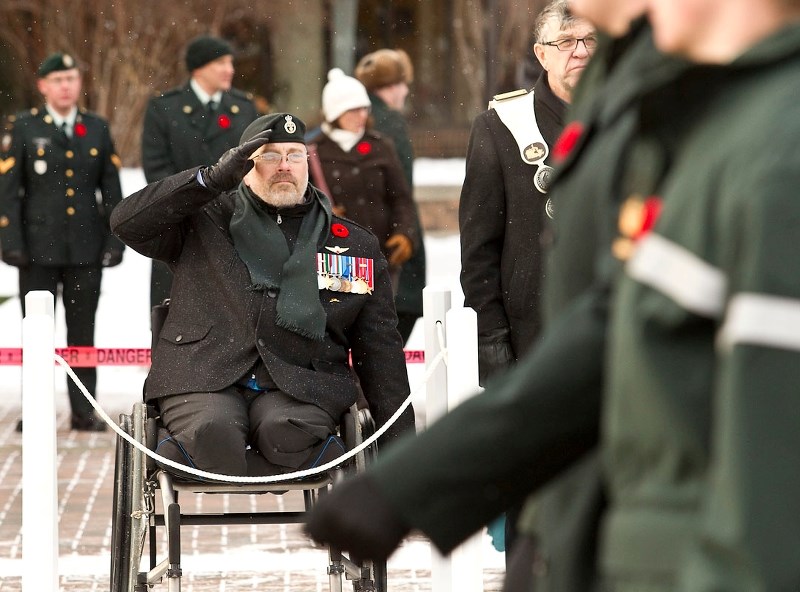A retired army major who lost his legs in Afghanistan is giving the federal government a cautious thumbs-up for its efforts to improve support for wounded veterans this week.
Veterans Affairs Minister Erin O'Toole tabled Bill C-58 in the House of Commons Monday.
The bill, if passed, would make it so that any current or former soldier who sustained a severe and traumatic injury or developed an acute disease in the course of their military service after March 31, 2006, would receive a one-time tax-free payment of $70,000.
Retired Canadian Forces major Mark Campbell would qualify for this benefit. He lost both his legs in Afghanistan on June 2, 2008.
He's currently part of a class-action lawsuit against the federal government that says the government violated the Charter of Rights and Freedoms by giving inadequate support to soldiers injured after 2006 – the year when the government's controversial New Veterans Charter came into force.
"We consider it to be long overdue," he said of the proposed payment.
"They (the government) get a cautious thumbs-up."
Campbell, who lives in Sturgeon County, said this grant would have helped with expenses during his recovery – expenses such as his home's wheelchair ramp and his $32,000 wheelchair-accessible vehicle.
But Campbell was concerned that this benefit could exclude veterans who need it. The bill says the benefit only kicks in if your injury was the result of a "single incident," suggesting that someone who got post-traumatic stress disorder from many incidents wouldn't qualify for it.
This bill is an attempt by the government to fix its strained relationship with veterans prior to this fall's election, said Edmonton-St. Albert MP Brent Rathgeber.
While $70,000 sounds like a lot of cash, Rathgeber said it isn't when you realize it's a fraction of the $250,000 you'd get for similar workplace or automobile injuries outside of the military.
And it's also up to the minister to pay it out. Rathgeber noted that Bill C-58 says the government "may" make these and the other payments created by the bill, not "shall," which means injured veterans are not automatically entitled to them.
"I think that's problematic."
Rathgeber called on the government to make these payments mandatory, lest it get stingy with them post-election.
Signs of change?
The proposed bill also includes other tweaks to veterans aid announced last month.
One is the retirement income security benefit. This monthly payment is meant to ensure that an injured veteran's income is equal to at least 70 per cent of the benefits they received from Veterans Affairs prior to age 65. It's meant to make up for the loss of the earnings and benefits, which gives injured veterans 75 per cent of their pre-release salary up until age 65.
The bill also creates an annual tax-free family caregiver relief benefit of $7,238 for family members who care for injured veterans.
This change is meant to give family members a month off from the often-stressful task of caring for a veteran, Campbell said. It's a start, but since his wife had to give up a $60,000-a-year career to care for him, he said that family caregivers might need an income-replacement program instead.
This bill addresses most of the recommendations made by last fall's all-party review of the New Veterans Charter, but not the big one, Campbell said.
"We're still 40 per cent behind the former Pension Act in terms of annual income for those who can't successfully transition to a civilian career," he said.
And there's the ongoing issue of the government switching from pensions to lump-sum payments, Rathgeber said. Many soldiers aren't fit to deal with a lump sum after they're injured and could lose it all due to addictions, bad advice or mental illness.
"The lump-sum payment has been nothing short of a disaster," he said, one that has left many Alberta veterans homeless.
The bill, if passed, comes into effect on July 1, 2015.



